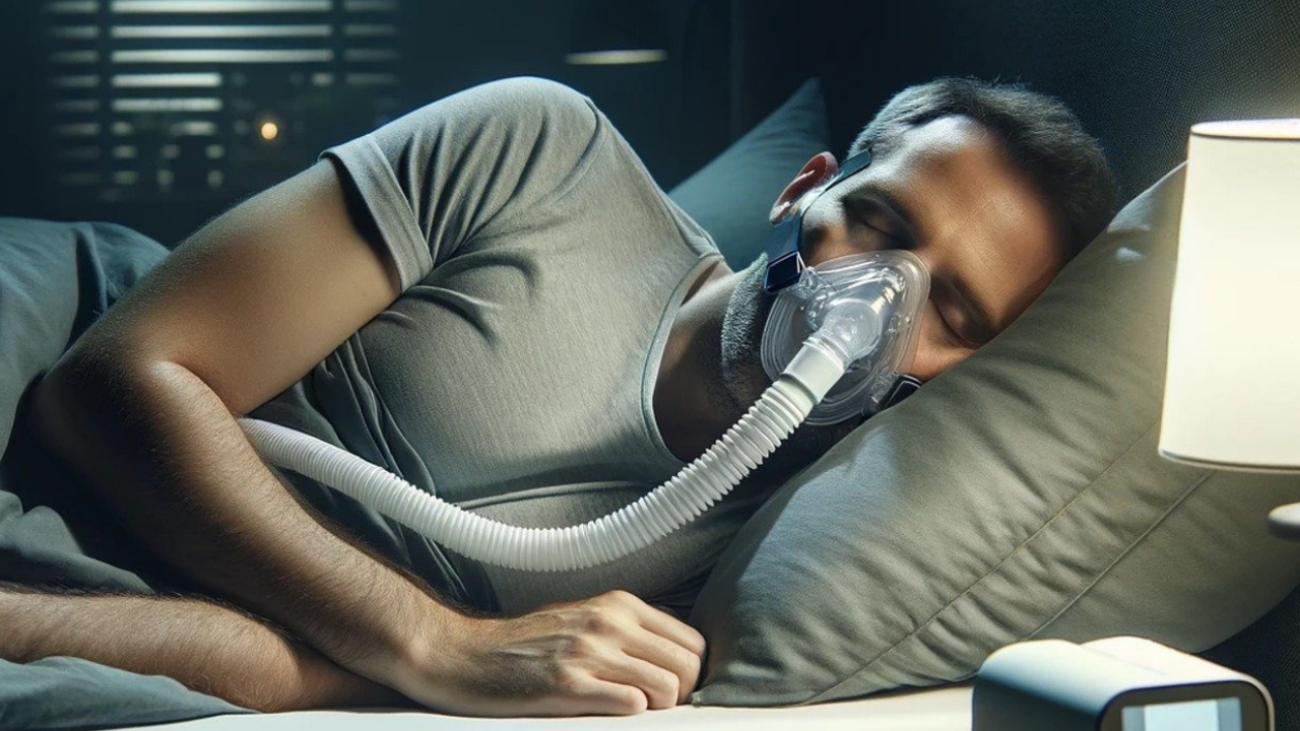Sleep tests, also known as sleep studies, are diagnostic procedures used to evaluate an individual’s sleep patterns and identify any potential sleep disorders. These tests are particularly important for individuals experiencing symptoms such as excessive daytime sleepiness, loud snoring, sleep apnea, or insomnia. In Perth, there are several sleep clinics that offer a range of sleep tests to help diagnose and treat sleep-related issues. This article will provide a comprehensive overview of sleep tests, their importance, types available in Perth, how to prepare for them, and how to interpret the results. Additionally, we will explore factors to consider when choosing a sleep test clinic in Perth. So, whether you’re facing sleep difficulties yourself or wanting to learn more about these tests, keep reading to discover everything you need to know.
Understanding the Importance of Sleep Tests
Sleep tests play a crucial role in diagnosing sleep disorders and understanding the root causes behind various sleep-related symptoms. They provide valuable information about an individual’s sleep patterns, breathing, brain activity, and movement during sleep. By monitoring these factors, sleep tests can help healthcare professionals accurately diagnose conditions like sleep apnea, narcolepsy, restless legs syndrome, and insomnia. Moreover, sleep tests offer insight into any underlying medical conditions that may be interrupting a good night’s sleep, such as heart disease or respiratory disorders.
By understanding the importance of sleep test Perth, exploring the available types in Perth, and knowing how to prepare for them, you can take control of your sleep health. Interpreting your sleep test results and choosing the right sleep test clinic are equally important steps on the path to better sleep and overall well-being. Whether you’re personally dealing with sleep difficulties or seeking knowledge on behalf of a loved one, prioritizing good quality sleep is essential for a healthy and fulfilling life.
The Science Behind Sleep Tests
To comprehend the significance of sleep tests, it’s essential to understand the science behind them. Sleep tests typically involve monitoring various physiological signals during sleep, such as brain waves, eye movement, heart rate, and oxygen levels. This data is collected using specialized equipment that records the activity of the body and brain throughout the night. By analyzing these recordings, sleep specialists can identify abnormalities, disruptions, or irregularities in sleep patterns, allowing for accurate diagnosis and tailored treatment plans.

Why Sleep Tests are Necessary
Sleep disorders can significantly impact an individual’s quality of life, overall health, and psychological well-being. Ignoring sleep-related symptoms or failing to identify and treat sleep disorders can lead to serious consequences, including chronic fatigue, impaired concentration, increased risk of accidents, cardiovascular problems, and mental health issues. Sleep tests are necessary to diagnose sleep disorders accurately, enabling appropriate interventions to improve sleep quality and overall health.
Furthermore, sleep tests provide a comprehensive evaluation of an individual’s sleep architecture. Sleep architecture refers to the organization and structure of sleep stages throughout the night. By examining the different stages of sleep, such as rapid eye movement (REM) sleep and non-REM sleep, sleep tests can reveal valuable insights into the quality and quantity of sleep an individual is experiencing. This information is particularly useful in identifying sleep disorders that may not be immediately apparent based on symptoms alone.
In addition to diagnosing sleep disorders, sleep tests can also help monitor the effectiveness of treatment interventions. For instance, if an individual with sleep apnea undergoes continuous positive airway pressure (CPAP) therapy, sleep tests can be used to assess the reduction in apnea events and improvements in sleep quality. This allows healthcare professionals to make necessary adjustments to the treatment plan and ensure optimal outcomes for patients.
Types of Sleep Tests Available in Perth
In Perth, several types of sleep tests are available to cater to the specific needs and preferences of individuals seeking diagnostic evaluation. The two primary types of sleep tests commonly performed are polysomnography and home sleep tests.
Polysomnography: An In-depth Look
Polysomnography, the gold standard of sleep tests, is a comprehensive evaluation performed in a sleep clinic. This overnight test involves recording various physiological parameters, such as brain waves, eye movements, muscle activity, heart rate, and breathing patterns. A team of experienced sleep technologists closely monitors the individual’s sleep throughout the night, ensuring accurate data collection. Polysomnography provides detailed information about sleep stages, breathing abnormalities, and movement disorders, aiding in the identification of sleep disorders.
During a polysomnography test, electrodes are placed on the scalp, face, chest, and legs to monitor brain activity, eye movements, and muscle tone. These electrodes are connected to a computer system that records and analyzes the data in real-time. Additionally, belts are placed around the chest and abdomen to measure breathing effort, and a sensor is placed on the finger to monitor oxygen levels. The individual is then observed through video surveillance to assess sleep behavior and any potential disruptions. Learn more about computer at https://edu.gcfglobal.org/en/computerbasics/what-is-a-computer/1/
After the test, the collected data is carefully analyzed by sleep specialists who interpret the results and provide a comprehensive report. This report includes information about sleep architecture, the presence of sleep disorders, and recommendations for further treatment or intervention if necessary.
Home Sleep Tests: A Convenient Option
For individuals who prefer the convenience of being tested in the comfort of their own homes, home sleep tests are an excellent alternative. These tests involve the use of portable devices that monitor specific parameters, typically focusing on breathing patterns, oxygen levels, and heart rate. While home sleep tests may not provide the same level of comprehensive data as polysomnography, they are effective in diagnosing common sleep disorders such as obstructive sleep apnea.
Prior to the test, patients receive instructions on how to apply and wear the monitoring equipment to ensure accurate results. The portable devices used in home sleep tests are compact and easy to use, allowing individuals to sleep comfortably without the need for extensive wires and electrodes. These devices typically consist of a small device worn on the wrist or finger to measure oxygen levels, a nasal cannula to monitor breathing patterns, and a chest strap to measure heart rate. Some devices also include a built-in accelerometer to detect body movement during sleep.
Once the test is completed, the data recorded by the portable device is transferred to a computer or smartphone application for analysis. Sleep specialists then review the data and provide a comprehensive report, similar to the one provided after polysomnography. This report includes information about sleep quality, the presence of sleep disorders, and recommendations for further evaluation or treatment.
Preparing for Your Sleep Test
Preparing for a sleep test can help ensure accurate results and a smooth testing experience. Here are some key considerations to keep in mind:
Before your sleep test, it’s essential to understand the purpose of the test and how it will be conducted. Sleep tests, also known as polysomnograms, are typically performed to diagnose sleep disorders such as sleep apnea, insomnia, or narcolepsy. The test involves monitoring your brain waves, heart rate, breathing patterns, and other vital signs while you sleep. This information helps healthcare providers evaluate your sleep quality and identify any potential issues that may be affecting your rest.
What to Expect on the Day of the Test
On the day of your sleep test, it’s important to arrive at the clinic well-rested and maintain your usual daily routine. Avoid napping and consuming excessive caffeine or alcohol. Bring comfortable sleepwear, toiletries, and any necessary medications. You will be provided with a private room to change and prepare for the test. The sleep technologist will explain the entire process and answer any questions you may have.
During the test, electrodes will be placed on various parts of your body to monitor different physiological functions. These electrodes are painless and non-invasive, designed to collect data throughout the night while you sleep. The room where the test is conducted is designed to resemble a comfortable bedroom, helping you feel at ease and facilitating a more natural sleep environment.
Tips for a Successful Sleep Test
To ensure a successful sleep test, follow these tips:
- Avoid consuming heavy meals or engaging in strenuous exercise before the test.
- Refrain from using electronics or engaging in stimulating activities before bedtime.
- Create a relaxing bedtime routine, promoting a calm and comfortable sleep environment.
- Inform the sleep technologist about any ongoing medications or medical conditions.
- Try to relax and replicate your typical sleep routine as closely as possible.
Remember, the goal of the sleep test is to gather accurate data about your sleep patterns and behaviors. By following these tips and being prepared, you can contribute to a successful testing experience and help healthcare providers make informed decisions about your sleep health. To read more about experience click here.

Interpreting Your Sleep Test Results
Once your sleep test is complete, it’s crucial to understand how to interpret the results accurately. The sleep clinic will provide you with a detailed sleep test report, which will be reviewed by a sleep specialist. However, it’s helpful to have a general understanding of what the report entails and what certain terms and measurements represent.
Understanding Your Sleep Test Report
A typical sleep test report includes information about sleep efficiency, sleep latency, total sleep time, and the number and duration of awakenings during the night. It may also outline any breathing abnormalities observed, such as the frequency and severity of apnea or hypopnea episodes. Additionally, the report may include measurements related to oxygen saturation, heart rate, and body movements. A sleep specialist will interpret these findings and provide a comprehensive analysis of your sleep patterns and potential sleep disorders.
Next Steps After Receiving Your Results
After receiving your sleep test results, it’s crucial to schedule a follow-up appointment with a sleep specialist to discuss the findings and develop an appropriate treatment plan if necessary. The specialist will explain the implications of the results and recommend suitable interventions, which may include lifestyle modifications, medical treatments, or the use of sleep therapy devices.
Choosing the Right Sleep Test Clinic in Perth
When selecting a sleep test clinic in Perth, several factors should be considered to ensure you receive high-quality care and accurate results.
Factors to Consider When Choosing a Clinic
Here are some key factors to consider when selecting a sleep test clinic in Perth:
- Accreditation and reputation of the clinic
- Expertise and experience of the sleep technologists and specialists
- Availability of both in-lab and home sleep tests
- Convenience of appointment scheduling
- Insurance coverage and financial considerations
The Role of Certified Sleep Technologists
Certified sleep technologists play a vital role in conducting sleep tests and ensuring accurate data collection. When choosing a clinic, consider their qualifications, experience, and commitment to patient comfort and safety. Well-trained sleep technologists can significantly contribute to the overall success of your sleep test experience and the reliability of the results.
Learn about cost of sleep test cost on: Breaking Down the Cost of a Sleep Apnea Test

